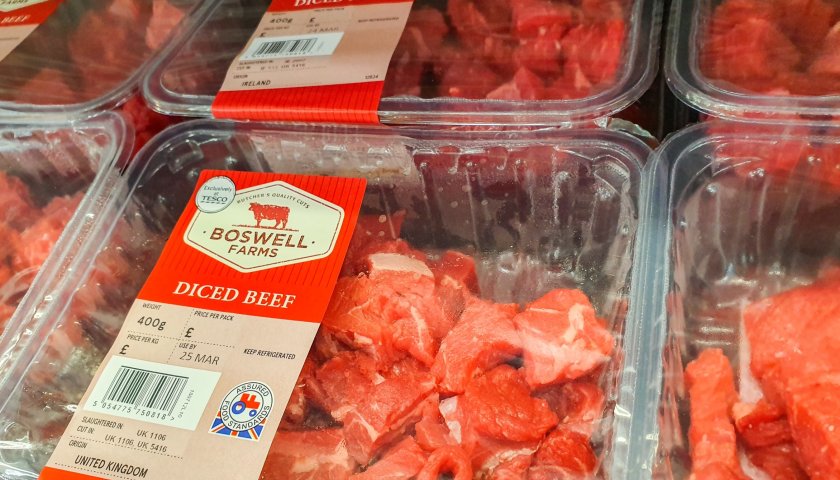
Aldi has once again been named Scotland’s leading supermarket for sourcing Scottish produce, but farming leaders say all retailers must do more to back home-grown food and reduce reliance on imports.
According to NFU Scotland’s ShelfWatch 2025 Mid-Year Report, 41% of Aldi’s shelf stock is now Scottish in origin — a 7% increase since January and 6% up year-on-year.
The retailer’s combined Scottish and British sourcing stands at 88%, matching the Co-op and putting both supermarkets well ahead of their competitors.
Aldi remains the frontrunner, but other supermarkets are closing the gap. The Co-op has made the biggest gains since January, while Asda’s year-on-year progress matches Aldi’s.
NFU Scotland President Andrew Connon welcomed the improvements but warned that overall sourcing levels remain too low. “Aldi’s progress is encouraging and shows what’s possible when retailers genuinely commit to local sourcing,” he said.
“But it’s equally positive to see other supermarkets closing the gap, particularly Co-op and Asda, who have also made real progress this year. Across the sector, however, less than 1 in 5 products on shelves are Scottish-sourced – and that must change.”
The ShelfWatch audit tracks the origin, labelling and visibility of own-label goods across eight major UK supermarkets. While there has been progress in pork and milk, the report highlights troubling trends in other areas.
Imported lamb rose by 8% year-on-year, with Tesco and Morrisons now stocking product from New Zealand and Australia. Asda stocked no Scotch lamb, with imports accounting for 82% of its lamb range.
There was better news in pork, where British sourcing is up 17%, replacing some imports — proof, the union said, that “progress is possible when retailers engage.”
But imported vegetables have surged across several chains, reflecting both the impact of this year’s dry weather and an ongoing lack of investment in domestic supply chains.
NFU Scotland said greater commitment to local sourcing is essential to supporting farmgate prices, rural jobs and long-term food security.
Connon added: “Consumers want to buy Scottish. Farmers want to supply Scottish. But supermarkets are still too reliant on imports – whether that’s lamb from the Southern Hemisphere or veg flown in from overseas. ShelfWatch shows encouraging steps forward from several supermarkets, but also that there’s still a long way to go.”
Aldi, which established its Scottish Buying Department in 2009, now works with more than 90 Scottish suppliers and offers over 450 locally produced items. The retailer said the ShelfWatch data continues to shape its approach to sourcing and supply chain development.
Graham Nicolson, group buying director at Aldi Scotland, said: “We’re proud of the progress we’ve made and remain committed to supporting Scottish farmers and producers.
"ShelfWatch provides valuable insight that helps us strengthen local supply chains, expand Scottish ranges, and ensure high-quality produce reaches our customers.”
NFU Scotland said it will revisit the findings in its end-of-year ShelfWatch report, when it plans to engage directly with major retailers on clearer labelling, fairer pricing and stronger commitments to Scottish produce.
